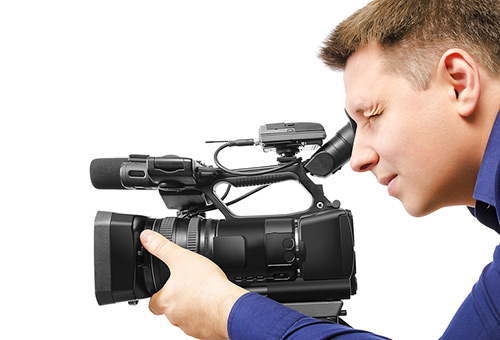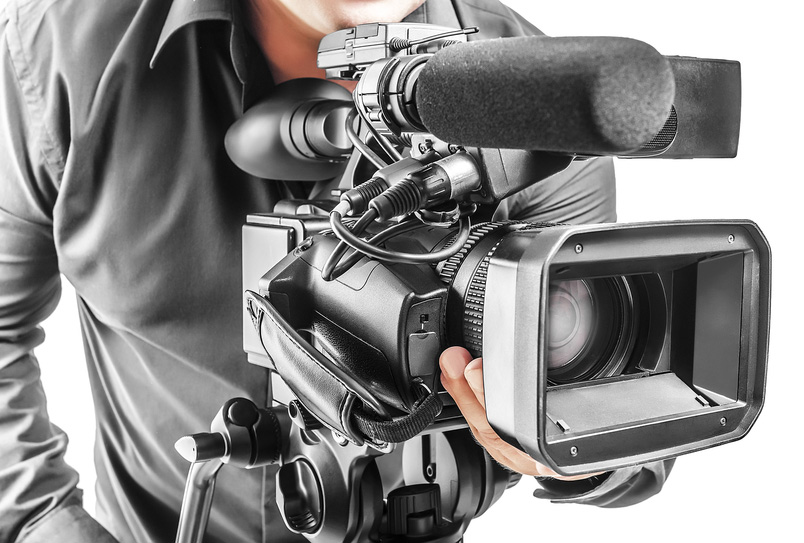The Duty of Legal Videography in Depositions and Trials
Lawful videography has actually arised as a vital tool in both depositions and trials, providing a multifaceted strategy to recording witness testaments. By catching not just the spoken word however also the nuances of non-verbal interaction, this medium improves the credibility of statements and maintains vital proof for future procedures. As attorneys progressively acknowledge its value, it prompts a deeper assessment of how these aesthetic records can influence juror understandings and trial end results. What implications might these advancements hold for the future of lawful technique?
Significance of Lawful Videography
Legal videography plays a pivotal duty in the documents and presentation of depositions and trials. This specialized field combines technical skills with legal expertise to create a reputable record of process that can dramatically influence situation outcomes. The appearance of legal videography boosts the understanding of witness statement, permitting jurors and judges to observe not just the talked words yet also the attitude, emotions, and body language of the witnesses.

The importance of lawful videography prolongs past the court; it likewise plays an essential function in maintaining evidence for future referral, whether for appeals or further legal activity. As such, its integration right into the legal procedure is necessary for making sure a reasonable and accurate representation of the truths, eventually adding to the pursuit of justice.

Refine of Legal Videography
While recording the nuances of depositions and tests, the process of lawful videography entails numerous essential actions that make certain top notch, precise recordings. Initially, a professional lawful videographer prepares by evaluating the situation materials and recognizing the certain demands of the deposition or test. This preparation includes familiarizing themselves with the participants and the context, which helps in recording pertinent information.
On the day of the recording, the videographer establishes up the needed equipment, which commonly consists of high-definition cams, microphones, and appropriate illumination. Making certain ideal angles and audio quality is important, as it directly impacts the effectiveness of the recording. The videographer connects with lawyers and individuals to establish procedures, guaranteeing that every person comprehends the recording procedure.
During the deposition or test, the videographer meticulously tapes the proceedings, paying very close attention to both spoken and non-verbal cues. legal videography. This consists of catching the attitude and reactions of witnesses and attorneys. After the session concludes, the videographer may modify the video for quality and conformity with lawful criteria, producing a final item that accurately reflects the procedures for future referral and use in lawful contexts
Benefits in Depositions
The consolidation of videography in depositions uses countless advantages that boost the learn this here now total procedure of collecting evidence. One primary advantage is the ability to catch witness statements with visual and acoustic fidelity, giving a much more precise representation of the witness's behavior, tone, and body language. This multidimensional technique allows lawyers and juries to evaluate integrity a lot more properly than typical written transcripts alone.
Additionally, videographed depositions function as an effective tool for protecting testimony. Must a witness come to be unavailable for test, their tape-recorded deposition can be played in court, ensuring that their proof remains accessible and relevant. This facet substantially reduces the risk of losing vital details that might influence instance outcomes.
Moreover, the use of legal videography advertises much better prep work for attorneys. Evaluating video clip footage allows legal teams to examine and fine-tune their strategies, recognizing strengths and weaknesses in their situations. This primary benefit can cause even more compelling presentations in court.
Finally, videography improves the general expertise of the deposition procedure, instilling confidence in customers concerning the thoroughness of their lawful depiction. By leveraging innovation, attorneys can substantially enhance the efficiency of depositions.
Effect On Trials
In lots of trials, the integration of videography can significantly influence the discussion of evidence and the court's understanding. Legal videography records witness testimonies and critical proof in a dynamic style, allowing jurors to involve with the material on numerous degrees. This aesthetic element boosts the narration facet of a test, giving context and emotional resonance that traditional text-based evidence may lack.
Additionally, video clip recordings can work as effective tools for impeachment throughout cross-examination. When discrepancies develop in between a witness's prior statements and their courtroom testament, video proof gives an unbiased reference that can persuade jurors' opinions. This immediacy and clearness can bolster the reliability of a celebration's find more info narrative while all at once weakening opposing disagreements.
Furthermore, using videography can help streamline complex info, making it much more accessible to jurors who might struggle to comprehend detailed information provided solely through spoken testament. By combining visuals with acoustic information, legal videography can improve retention and understanding, eventually influencing the jury's decision-making process. For that reason, the effect of videography in trials extends past mere aesthetic appeals; it plays an essential role fit the lawful landscape and outcomes.
Future Trends in Legal Videography
As we look toward the future of lawful videography, several emerging trends assure to reshape its function within the courtroom. One considerable fad is the assimilation of man-made intelligence (AI) in video analysis look at this site and editing - legal videography. AI can improve the procedure of determining vital moments in recorded depositions, allowing lawyers to rapidly access relevant material, thereby boosting performance in case prep work
Furthermore, the surge of digital reality (VR) and boosted fact (AR) modern technologies is anticipated to transform just how jurors experience evidence. By immersing jurors in a substitute setting, these modern technologies can offer an extra extensive understanding of complex circumstances, causing more educated deliberations.

Moreover, the boosting demand for remote depositions, accelerated by the COVID-19 pandemic, will likely continue. Legal videographers will need to adjust to brand-new software program and platforms to make certain high-grade recordings in digital settings.
Finally, the growing focus on data safety and security will necessitate more stringent procedures for keeping and sharing video clip evidence. As the lawful landscape advances, legal videographers need to stay abreast of these patterns to preserve their importance and efficiency in the judicial procedure.

Verdict
In recap, legal videography offers a critical function in the judicial procedure, enhancing the honesty of depositions and trials. By capturing the nuances of witness testaments, this tool not just preserves crucial evidence but also aids in presenting information efficiently to jurors. The value of visual documents in evaluating reputation and assisting in interrogation can not be overemphasized. As modern technology proceeds to develop, lawful videography is poised to more transform its duty within the legal landscape.